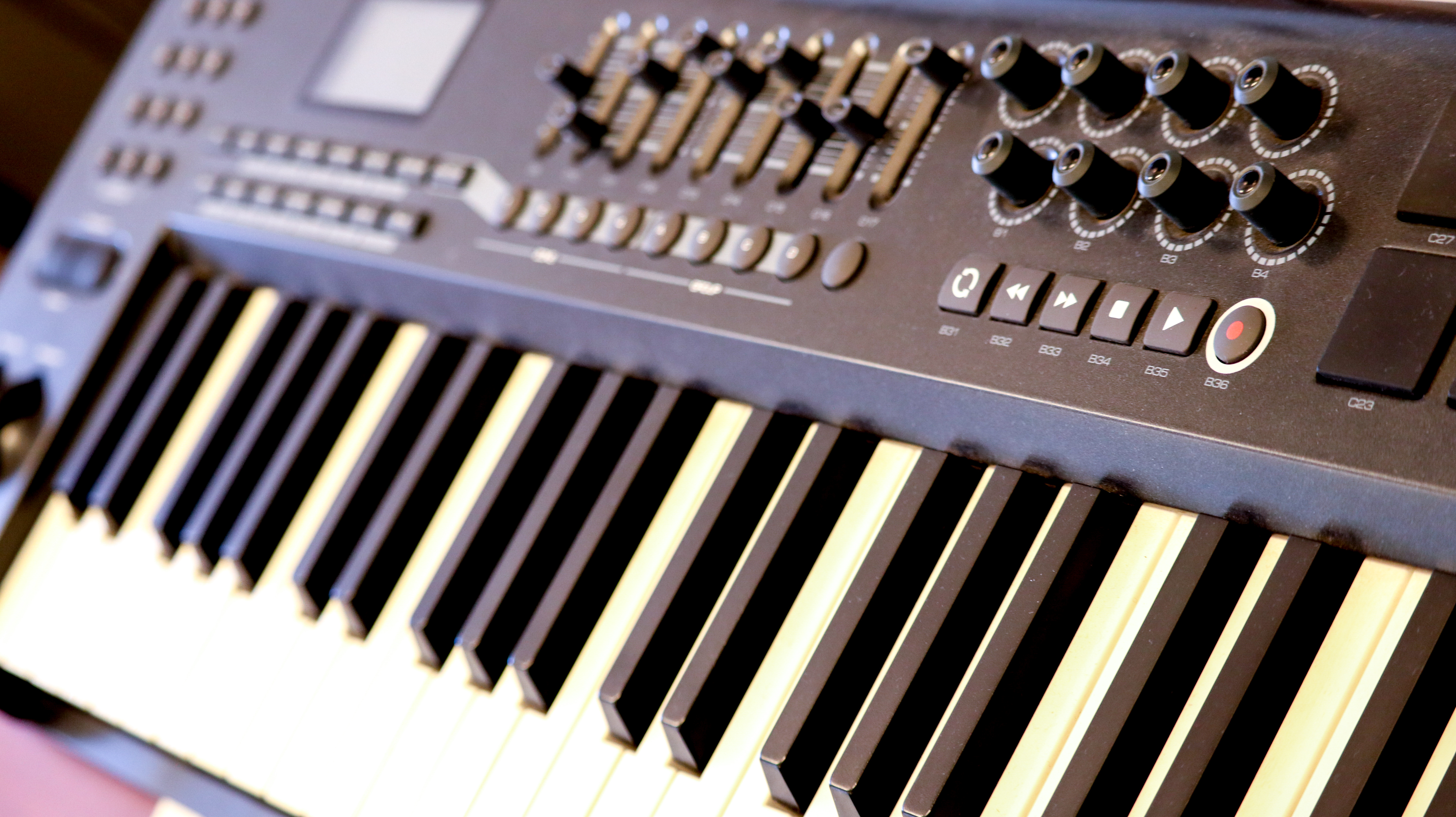What Will You Learn?
- Critical approaches to sound and the listening environment
- The structures and compositional forms of music
- Audio technology (various DAWs programs and audio devices)
- Ear training, sound design and musical performance on an instrument
- Acoustics and sound control
As a sound studies major, you will take a total of 30 credits in music performance, music theory, digital audio, acoustics and sound design. Here are some courses you should expect to take: Piano Skills I / Guitar Skills I (MUSC 208/209); Fundamentals of Music Theory (MUSC 220); Acoustics and Sound Control (MUSC 393); Digital Audio Recording and Editing (MUSC 390); History of Sound Recording and Audio Technology (MUSC 380); Modern Music and the Avant Garde (MUSC 325) and Contemporary Sound Design (MUSC 405).
The Experience
The Sound Studies program encourages creativity in all its forms. As a student, you'll have access to industry standard equipment and software for class assignments and personal projects. Check out the facilities of the Sound Studies program for more information. In addition, you are encouraged to get involved in one of the many ensembles on campus, where you will practice with fellow students led by music professionals, receive lessons on your instrument and have the opportunity to perform both on campus and throughout the New York City-region.
Hands-On Learning
Immerse yourself in the dynamic world of sound studies through hands-on learning initiatives tailored for aspiring sound studies scholars.
What Will You Do:
In the past, our students have interned at:
- The David H. Koch Theater at Lincoln Center for the Performing Arts
- The Metropolitan Opera
- The Paul Taylor Dance Company
- The New Victory Theater
- The York Theatre Company
- Q104.3
- Rolling Stone magazine
- SPIN magazine
- Sony BMG Music Entertainment
- Warner Music Group
- Cerami and Associates
- Electric Lady Studios
- Studio G Brooklyn
- 59E59 Theaters
- Lionsgate Films
Courses
As a sound studies major (total 30 credits), here are some courses you should expect to take:
- Piano Skills I / Guitar Skills I (MUSC 208/209)
- Advanced Music Theory (MUSC 320)
- Acoustics and Sound Control (MUSC 393)
- Digital Audio Recording and Editing (MUSC 390)
- History of Sound Recording and Audio Technology (MUSC 380)
See the Degree Requirements
 Sound Studies is a both a discipline and a critical approach that attempts to examine the entire listening environment and how it relates to industry, social justice, technology, nature and the urban environment. By redefining the study of music as the study of sound, Sound Studies is a music major for the 21st century that takes traditional music study (music theory, performance, musicology, composition) and combines it with the science of sound (audio technology, acoustics, listening spaces and devices, music recording and editing).
Sound Studies is a both a discipline and a critical approach that attempts to examine the entire listening environment and how it relates to industry, social justice, technology, nature and the urban environment. By redefining the study of music as the study of sound, Sound Studies is a music major for the 21st century that takes traditional music study (music theory, performance, musicology, composition) and combines it with the science of sound (audio technology, acoustics, listening spaces and devices, music recording and editing).